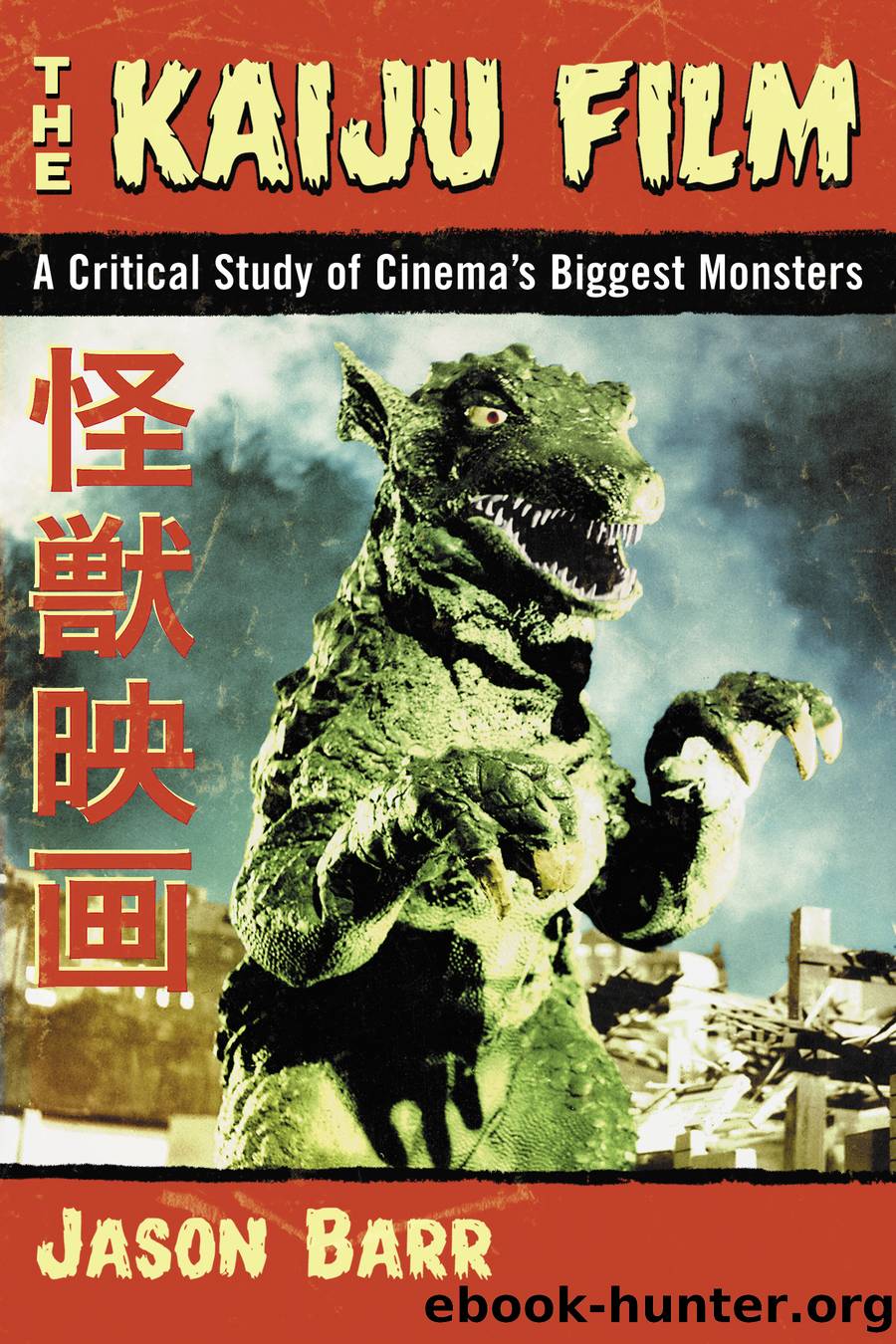The Kaiju Film by Jason Barr

Author:Jason Barr
Language: eng
Format: epub
Publisher: McFarland
Published: 2016-02-04T16:00:00+00:00
Chapter 4
* * *
Science and the Weapons of Mass Destruction
The phrase “weapons of mass destruction,” according to the Oxford English Dictionary, came into popular usage during World War II, mostly referring to nuclear weapons. Although world history is dotted with major battles that killed large numbers of people, never before had weapons been developed that were designed to kill millions of people in one blast. Eventually, in the 21st century, the phrase began to represent almost any kind of nonconventional weapon, including chemical and biologically based weapons, that can cause widespread devastation. In the lead-up to the Iraq War, the phrase was on the tongues of many Americans, as the American government had proclaimed that the Iraqi government was harboring these weapons and biding its time to unleash WMDs on unsuspecting citizens. Thus, the philosophy of weapons of mass destruction as a preventative for war, through concepts like mutually assured destruction, gave way to weapons of mass destruction as an impetus of war; some countries just should not have possession of such weapons, and thus they should be assaulted. This semantic and philosophical shift can be found in military parlance. Take, for example, the massive MX missile in the United States arsenal, which can deliver a payload over 200 times that of the Hiroshima blast, and has been dubbed the “Peacekeeper” and a “damage limitation weapon” (Cohn 354–355).
Additionally, the use of chemical and biological weapons, as well as the prospect of so-called nuclear dirty bombs, has seeped into the consciousness of much of the world, especially in the 1990s onward. Incidents such as the sarin poison gas attacks in Japan in 1995 and the anthrax terror attacks in the United States only heightened the awareness. These attacks were no longer happening only to soldiers deployed in war zones abroad; they were now claiming the lives of average, everyday citizens. WMDs were, in other words, something that did not affect other people somewhere else; they could affect—and have affected—people anywhere.
Of course, Godzilla (1954) broached the subject directly, as we shall see, and the impact of the theme of weapons of mass destruction resonates through nearly all kaiju films—indeed, the kaiju themselves, even when not explicitly stated, represent massive destruction on unprecedented scales, and their arrival represents an often seismic change in the country’s future. Even though many films in the kaiju genre feature endings in which the kaiju come to some sort of resolution—they are defeated, turned away, or simply leave—they always leave a massive, often unseen trail of destruction in their wake.
Download
This site does not store any files on its server. We only index and link to content provided by other sites. Please contact the content providers to delete copyright contents if any and email us, we'll remove relevant links or contents immediately.
| Coloring Books for Grown-Ups | Humor |
| Movies | Performing Arts |
| Pop Culture | Puzzles & Games |
| Radio | Sheet Music & Scores |
| Television | Trivia & Fun Facts |
The Kite Runner by Khaled Hosseini(5181)
Gerald's Game by Stephen King(4654)
Dialogue by Robert McKee(4405)
The Perils of Being Moderately Famous by Soha Ali Khan(4221)
The 101 Dalmatians by Dodie Smith(3511)
Story: Substance, Structure, Style and the Principles of Screenwriting by Robert McKee(3470)
The Pixar Touch by David A. Price(3439)
Confessions of a Video Vixen by Karrine Steffans(3309)
How Music Works by David Byrne(3272)
Harry Potter 4 - Harry Potter and The Goblet of Fire by J.K.Rowling(3074)
Fantastic Beasts: The Crimes of Grindelwald by J. K. Rowling(3059)
Slugfest by Reed Tucker(3005)
The Mental Game of Writing: How to Overcome Obstacles, Stay Creative and Productive, and Free Your Mind for Success by James Scott Bell(2909)
4 - Harry Potter and the Goblet of Fire by J.K. Rowling(2703)
Screenplay: The Foundations of Screenwriting by Syd Field(2644)
The Complete H. P. Lovecraft Reader by H.P. Lovecraft(2564)
Scandals of Classic Hollywood: Sex, Deviance, and Drama from the Golden Age of American Cinema by Anne Helen Petersen(2526)
Wildflower by Drew Barrymore(2489)
Robin by Dave Itzkoff(2441)
